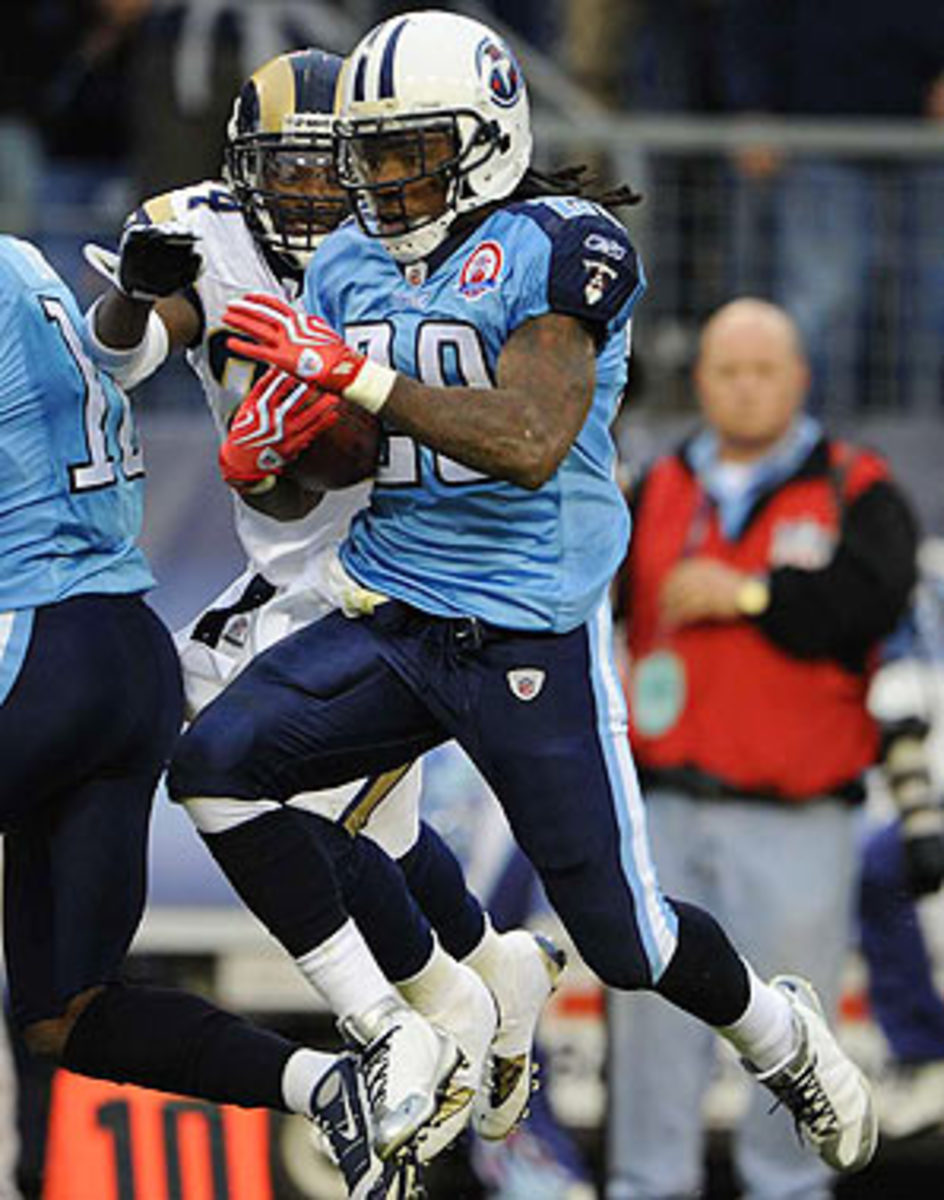Why the rookie wage scale is broken, and how the NFL can fix it
The exorbitant money being doled out to the first 10-15 picks in the NFL draft has gotten out of hand. And there are a multitude of reasons why the NFL needs to revamp the current system for paying its rookies. Here's a look at why rookie compensation should -- and likely will -- be fixed before a new collective bargaining agreement is signed:
• Negative Value. The guarantees given to the top 10 picks, and to a lesser extent picks 11-15, have gotten so out of control that unproven rookies receive more money than the premier veteran player would get on the open market. As an example, if Ndamukong Suh were to be drafted by the Rams with the No. 1 overall pick, his rookie contract would pay him more in terms of guaranteed compensation (likely over $42 million) than Albert Haynesworth received via from the Redskins last offseason ($41 million).
Because of that inequity, most teams would do almost anything to move out of the top 10, especially those holding selections in the top six or seven, where the numbers really get eye-popping. One team executive whose franchise assigns an internal value to every selection in the draft recently told me picks at the top end of the first round have a negative value associated with him. No wonder there's so much interest in trading down.
The possibility that teams could actually consider letting the time run out on their selection doesn't seem so crazy anymore, which speaks volumes about how much a new rookie wage scale is needed. Having a top pick used to be a reward aimed at league-wide parity. Now it is more of a burden.
• The Sweet Spot. Interestingly enough, the value associated with first-round draft choices goes from burden to bonanza fairly quickly. Because the guarantees are significantly less yet the players available still very talented, picks 20-64 represent tremendous value. Teams that draft a starter or significant contributor in one of those slots have a player locked up for four or five years who will make substantially less than what a comparable veteran would make for that same production.
Some teams figured this out several years ago and went about trying to acquire as many of those valued choices as possible. New England annually found ways to stockpile second rounders and Bill Belichick protégé Eric Mangini did the same thing a year ago in Cleveland by trading down twice in the first round. As a result, the Patriots and Browns appear to have gotten a tremendous amount of bang for their buck in the form of offensive tackle Sebastian Vollmer and wide receiver Mohammed Massaquoi, respectively.
The best current example of this is Titans running back Chris Johnson. The former East Carolina star wasn't taken until No. 24 by Tennessee in the 2008 draft due to concerns about his size and collegiate competition. In return for their five-year, $12 million investment, the Titans have been rewarded with Johnson setting the single-season all-purpose yardage record and becoming arguably the best running back in the league.
How good is Johnson? Titans receivers coach Fred Graves recently said in 34 years of coaching football he has never seen anyone like him. He is the best home run hitter the NFL has these days yet his compensation is dwarfed by dozens of other skill players.
• The Others. There are a boatload of players taken outside of the "sweet spot" who prove themselves to be quality players and subsequently highly underpaid under the terms of their initial contract. Pro Bowl wide receiver/kick returner Johnny Knox of the Bears, a fifth-round pick, is a stellar example from last season. He gets paid relative peanuts (four years, $1.95 million) considering all the things he bring to the table in Chicago.
And it's not just Knox. Colts cornerback Jerraud Powers started as a rookie third-round pick for an AFC championship team. The Packers routinely draft offensive linemen in the middle rounds, realizing the value created by getting two-, three-, or four-year starters at minimum salaries like guards Jason Spitz and Josh Sitton.
• The Solution. Some will argue the situation is complicated, and a solution won't be easy to find. Not me. Whether it is the overpriced top 10 picks or guys like Knox and Powers, the solution to me seems fairly simple: shorter rookie contracts.
What I would propose is very similar to some of the basic tenets of the current NBA system for paying its rookies. I like the idea of two-year contracts with a team option for a third. Most teams have a pretty good feel for what they have in a player after two years but the option year would allow those teams to retain their rights at a higher salary for an additional year if they still want to give him one more year to develop or show what he can do.
Every single pick would be slotted beforehand at compensation levels far lower than what we are currently witnessing for the top 10. After two years, teams would then have to make a decision whether to extend a player like Johnson or dump a mistake like Jets outside linebacker Vernon Gholston. Players who deserve it would get big second contracts earlier in their careers and would have earned them by, you know, actually performing at a high level in pro football, not just in college.
Sure, some of the elite agents wouldn't be happy. And I bet some teams confident in their ability to draft well would not like the idea that they only have the player's rights for two or three years as opposed to four or five. Even so, I think the pros outweigh the cons in this instance.






